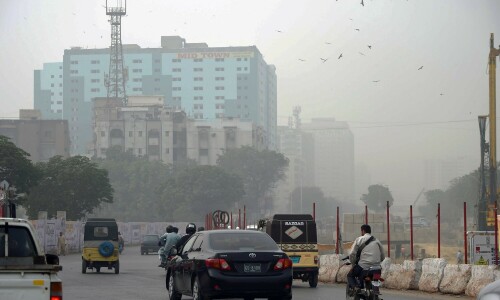Toxic levels of air pollution are disrupting the lives of millions of people in South Asia forcing closure of schools, impacting sporting events and leaving governments urging people to stay in doors to avoid health problems.
The worsening air pollution is an annual problem for South Asian nations as winter approaches and cold, heavy air traps pollution in a thick layer of smog.
South Asia has become the global hotspot for air pollution, with studies finding four of the world’s most polluted countries and nine of the 10 most polluted cities in the region.
Why is pollution in South Asia worse than other places?
Countries in South Asia have seen a marked increased in industrialisation, economic development, and population growth over the past two decades, leading to increased demand for energy and fossil fuels.
While sources like industries and vehicles affect most countries, there are certain major contributors that are unique to South Asia, including solid fuel combustion for cooking and heating, human cremation, and burning of agricultural waste.
About 38 per cent of the pollution in New Delhi this year, for example, has been caused by stubble burning — a practice where stubble left after harvesting rice is burnt to clear fields — in the neighbouring states of Punjab and Haryana.
An increase in the number of vehicles on roads as the region has developed has also exacerbated the pollution problem. In India and Pakistan, for example, the number of vehicles has increased four-fold since the early 2000s.
New Delhi, ranked the world’s most polluted capital for four years in a row by Swiss Group IQAir, has 472 vehicles per thousand population, according to government data, with almost eight million vehicles plying on its roads as of 2022.
Why are efforts to reduce pollution not working?
Although South Asian countries have started trying to curb pollution, putting together air quality management plans, installing more pollution monitors, and pushing for a switch to cleaner fuels, these are yet to yield significant results.
Experts say that the problem lies in a lack of coordination on pollution control efforts between the countries.
Dust particles can travel hundreds of kilometres, studies say, transcending national boundaries and impacting countries other than those in which they originate.
About 30 per cent of the pollution in Bangladesh’s largest cities, for example, originates in India and is transported to the country by the wind moving from northwest to southeast.
Country-wide or city-wide measures to curb toxic air, hence, have limited effectiveness.
What is the solution
Countries across South Asia will have to coordinate efforts if the region’s pollution problem is to be solved, collaborating to enhance monitoring and make policy decisions.
At the same time, these region-wide efforts will have to be balanced by moulding solutions to suit local conditions where needed.
In addition, the focus will also have to be broadened to include sectors that have received limited attention so far, such as agriculture and waste management.
To curb stubble burning, for example, governments can offer subsidies on better harvesting machines.
Countries like India have already started offering such incentives but demand for such machines has been limited due to their high purchase cost and high waiting time for those who want to rent them.












































Dear visitor, the comments section is undergoing an overhaul and will return soon.